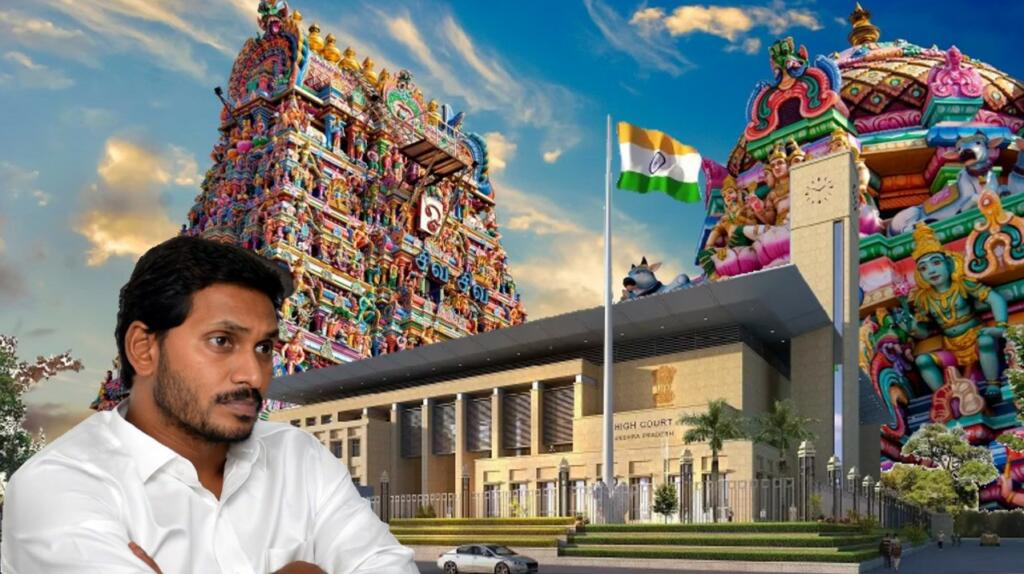- Andhra Pradesh High Court has stated that Bhakts have equal say in running the Mandirs
- Court observed that those who regularly participate in Mandir affairs can approach the Court if they find anything not suitable in Mandir management
- It seems as if the movement to free Mandirs and allow Bhakts to have a say is catching momentum in Andhra Pradesh
With respect to their relationship with the common people and polity of state, Mandirs in India are at an interesting juncture. Bhagwans inside the Mandirs are a guiding force for the majority of Indians, but these Bhakts do not have much say in how the deities inside Mandirs are taken care of. Though, recently, there have been some developments towards granting more rights to Bhakts and Andhra Pradesh is one of the states where this phenomenon to free Mandirs is accelerating.
High Court draws a defining line
Hon’ble High Court of Andhra Pradesh has given a decisive mandate on the management of Mandirs in the state. The High Court has categorically stated that Bhakts have a right to object to anything which they find misfit in the management of Mandirs. Citing various legal provisions, the Court also said that in case their issues are not being taken care of, they can approach the Court.
Read more: Char Dham will not be handled by the government anymore, but by Bhagwan’s Bhakts
Mismanagement of Mandirs
The case is related to Sri Mahakali Ammavaru Mandir. The Mandir had been constructed at its present location by the mother of a citizen named Yellanti Renuka. The Mandir was consecrated in 1976 by Pandits who had followed Vedic rituals for the process. With the passage of time, Mandir was further developed, and a Mandir management was established as well.
Later, Mandir management decided to reconstruct the Mandir and informed their decision to officers of the Endowment Department. Renuka and other founding members objected to it, but the management did not pay any heed, so they decided to file a writ petition in the High Court. The founding members contended that the unilateral decision to reconstruct the Mandir violated their Constitutionally given religious rights under Articles 25 and 26.
Court rejects the argument that Bhakts can’t complain
The management authority tried to debar Renuka from filing the writ on the ground that she was not a founding member. In turn, Renuka and other petitioners argued that they have been regular attendees of various ceremonies and other activities inside Mandir premises and thus they can be categorized as ‘person having interest’.
Accepting Renuka’s arguments, Court noted “Section 2(18)(b) of the Andhra Pradesh Charitable Hindu Religious Institutions and Charitable Endowments Act, 1987 states that any person who is entitled to attend or is in the habit of attending the performance of service, charity or worship connected with the institution, would be a ‘person having interest’.”
Accordingly, Renuka and her co-petitioners being ‘person having interest’ mean that they can move to Court. The Court cited Section 92 of Civil Procedure Code to vindicate its observation.
Establishing that Bhakts have a final say in Mandirs’ management, the Court said, “This is a recognition of the fact that devotees of a temple are entitled to have a say in the manner in which an institution or temple is run and it cannot be said that such persons having interest cannot be permitted to approach this court when there are complaints of mismanagement or violation of the methods of worship or essential religious practices.”
Twisted secularism in India
The decision by Andhra High Court is a refreshing and welcoming one. A secular state has no right to control religious institutions. But the twisted concept of Indian Secularism permits the state to selectively control Hindu Mandirs while allowing Mosques, Madrassas and Churches a completely free hand. Consequently, there’s rampant illegal encroachment of Mandir Lands, hundreds and thousands of acres of Mandir Lands are sold off by the government for its own petty benefit and there’s widespread embezzlement of Mandir Fund.
Moreover, the management of these Mandirs is also a big concern. In many cases, the individuals tasked with the management of Hindu Mandirs are themselves not Hindus, they’re often self-proclaimed atheists, communists and sometimes non-Hindus. Hindu Mandirs must be managed by people who are devout Hindus.
Read more: India’s Unique Secularism Permits the State to Selectively Control Hindu Temples
Free Mandir movement
After the Modi government came to power, there have been renewed efforts to free Mandirs, especially in South India. Recently, the BJP government in Karnataka said that it will pass specific legislation to free Mandirs from government control. Various prominent faces including Superstar Pawan Kalyan have been raising their voice against one-sided secularism in the country.
If this is a secular Country, why can't Govts have control over Churches and mosques, but only Hindu Temples?
Telugu Super star, Pavan Kalyan! pic.twitter.com/D9uu2EkmqX
— Ethirajan Srinivasan 🇮🇳🚩(Modi Ka Parivaar) (@Ethirajans) March 15, 2022
It is time for the renaissance of Mandirs in India. For 70 long years, they have been subject to soft and slow torture by the secular brigade dominating the Indian intelligentsia. It was only a matter of time before they could meet with a counterforce.
